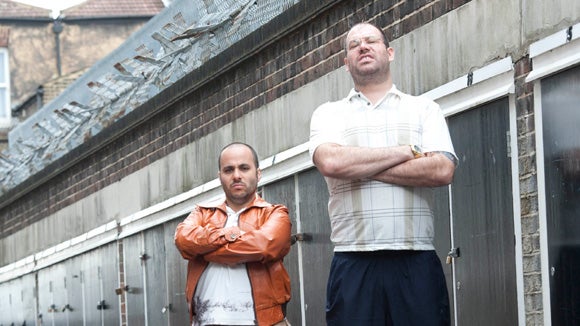TV review: Common Ground, Sky Atlantic
People Like Us, BBC3

Your support helps us to tell the story
From reproductive rights to climate change to Big Tech, The Independent is on the ground when the story is developing. Whether it's investigating the financials of Elon Musk's pro-Trump PAC or producing our latest documentary, 'The A Word', which shines a light on the American women fighting for reproductive rights, we know how important it is to parse out the facts from the messaging.
At such a critical moment in US history, we need reporters on the ground. Your donation allows us to keep sending journalists to speak to both sides of the story.
The Independent is trusted by Americans across the entire political spectrum. And unlike many other quality news outlets, we choose not to lock Americans out of our reporting and analysis with paywalls. We believe quality journalism should be available to everyone, paid for by those who can afford it.
Your support makes all the difference.The good news? You've just got a commission for a one-off comedy drama from Sky Atlantic. The bad news? You've got less than 12 minutes of airtime from soup to nuts. Taken together, Common Ground, a series of short films all set in the same stretch of south London, might eventually amount to more than the sum of its parts.
But that isn't going to make things any easier for the individual writers, who have to find some way to make the parts work on their own. Two strategies are obvious: compression, in which you simply squeeze a 40-minute drama into the space available, or butchery, in which you serve up a filleted sampler of a larger work. Katy Brand had opted for the first in her contribution, while Tom Davis and Eleanor Lawrence had gone the selection-box route.
Compression doesn't work, on this evidence. Eleanor, Brand's tale of a loveless organic café owner whose life takes a turn for the better when her shop goes bust and the premises are taken over by a greasy spoon, felt as if it was always in a rush to get the next plot turn in. Very large narrative details – such as the fact that Eleanor's father had committed suicide – went by in a blur, not satisfying in themselves but leaving just enough of a gloom behind them to dampen the joke that followed. And Brand seemed a little uncertain as to whether Eleanor was a prig due for a comeuppance or a figure of sympathy. They aren't mutually exclusive, of course, but you need a bit more time to marry the two qualities more successfully than Brand had here.
Sunshine Simon, about a south London loan shark faced with the unexpected reappearance of a frightening criminal associate (he escapes from a police van), was more successful because it worried less about plot than the establishment of character. It came across as an advertisement for a potential series, rather than a self-contained single – a promo-reel for a sharper, harsher Minder – with Tom Davis nicely understated as Simon, who looks like six-foot-six of imminent bodily harm but is actually inclined to turn the other cheek whenever possible. When his wife reminded him that Mad Micky, the escapee, had once stabbed him with a pizza knife, he was keen to underplay it: "That was just a bit of matey banter," he said. "A joke that got out of hand." I didn't quite believe the characters in Eleanor. I wanted to see more of these ones.
Anyone wanting to write about real people – whether they get 12 minutes or longer – would do well to watch People Like Us and pick up some tips about the vitality of ordinary speech. Some of it is flat-out funny, such as Karen's description of her partner's less than enthusiastic participation in a family night out ("He's got a face like a melted welly") or the mangled aphorism supplied by the mate of a club-night promoter ("It's that saying, in't it? 'Get rich or try dying'"). But there are also moments that blend pathos and comedy, as in the explanation that Paul's youngest daughter was kept in the dark about his stretch in Strangeways. "We told Madison that he was working for the Queen," said her mum. Madison bought it, but thought it was a bit odd that she had to be sniffed by a dog before visiting him.
And there are remarks that frame heartbreak as a rough-hewn poetry. "I'm crying all the time, me, lately," said Nicola's dad, an alcoholic who gulped down Lambrini as if it was mineral water. Then he said it again, broken into chunks for emphasis: "I'm crying. All the time. Lately." You rarely see such austere, self-consciously artificial ways of speaking in dramas about the dispossessed. The standard model is often a mannered inarticulacy. Which may be why so many dramas about the dispossessed lack life.
Join our commenting forum
Join thought-provoking conversations, follow other Independent readers and see their replies
Comments